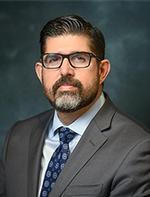ORLANDO — Joining forces to form a powerful movement was the theme as the Florida Charter School Conference and School Choice Summit kicked off Wednesday.
For the first time, the annual conference that brings together the state’s charter school leaders included private schools as part of a strategy to unite the Sunshine State’s education choice movement.

“After the passage of HB 1, it is one movement,” Florida Education Commissioner Manny Diaz Jr. said during his opening remarks at the conference, which was previously focused exclusively on charter schools.
This year’s event, held in Orlando, logged the highest participation rate ever with 853 attendees. Of those, more than 140 represented private schools.
Diaz said that while organizing this year’s conference, state education leaders had conversations about the importance of unifying the school choice movement, which historically had been more siloed.
“In Florida, we’re capitalizing on this historic school choice and charter school movement. We’re giving parents the ability to choose the best path for their students, regardless of background, regardless of income,” he said.
Florida enacted its charter school law in 1996 and launched its first private school choice program in 1999. Now, the state has more than 380,000 students attending more than 700 charter schools, and almost as many students enrolled in the nation’s largest suite of education choice scholarship programs. Together, those programs account for nearly a quarter of all the students in the state—a powerful political constituency if they joined forces.
Diaz called HB 1, which offered universal eligibility for education choice scholarships to all students regardless of family income and converted all traditional scholarships to education savings accounts, a “gamechanger” and urged members of the charter school and private school worlds to work together.
“The reason we have everybody together is it’s not two separate groups,” he said. “There’s so much collaboration that could go on between our charter schools and our private schools.”
In less than 30 years, Florida has come a long way from the days when parents had to lie about their addresses and risk criminal charges to gain access to the most desirable schools. Still, Diaz warned against complacency.
He wrapped up the opening session of the conference, which runs through Friday, with an admonition for everyone in the unified movement to keep innovating and creating new and better learning opportunities for students.
“Don’t make that mistake of becoming so mainstream that you become the status quo,” he said.


